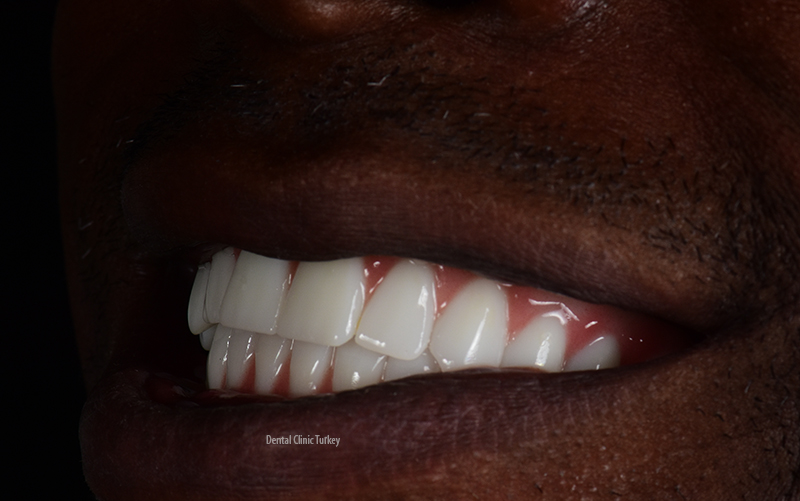The Comprehensive Guide to Dental Implants in Turkey: Restoring Your Smile with Confidence
Are you tired of hiding your smile because of missing teeth? Dental implants may be an ideal solution for you. And if you’re considering dental implant treatment, why not consider Turkey as your destination? In this comprehensive guide, we’ll explore dental implants in Turkey and how they can restore your smile with confidence.
Turkey has emerged as a popular destination for dental tourism due to its high-quality dental care, affordable prices, and skilled dentists. With state-of-the-art facilities and cutting-edge technology, you can expect top-notch treatment at a fraction of the cost compared to other countries.
But it’s not just about cost savings – Turkey offers a unique blend of culture, history, and natural beauty that makes your dental journey an unforgettable experience. From vibrant cities to stunning coastal resorts, you’ll have plenty to explore while receiving expert dental care.
In this guide, we’ll cover everything you need to know about dental implants in Turkey, including the procedure, costs, benefits, and what to expect before, during, and after treatment. So, let’s dive in and discover how dental implants in Turkey can give you the smile of your dreams.
Why choose dental implants in Turkey?
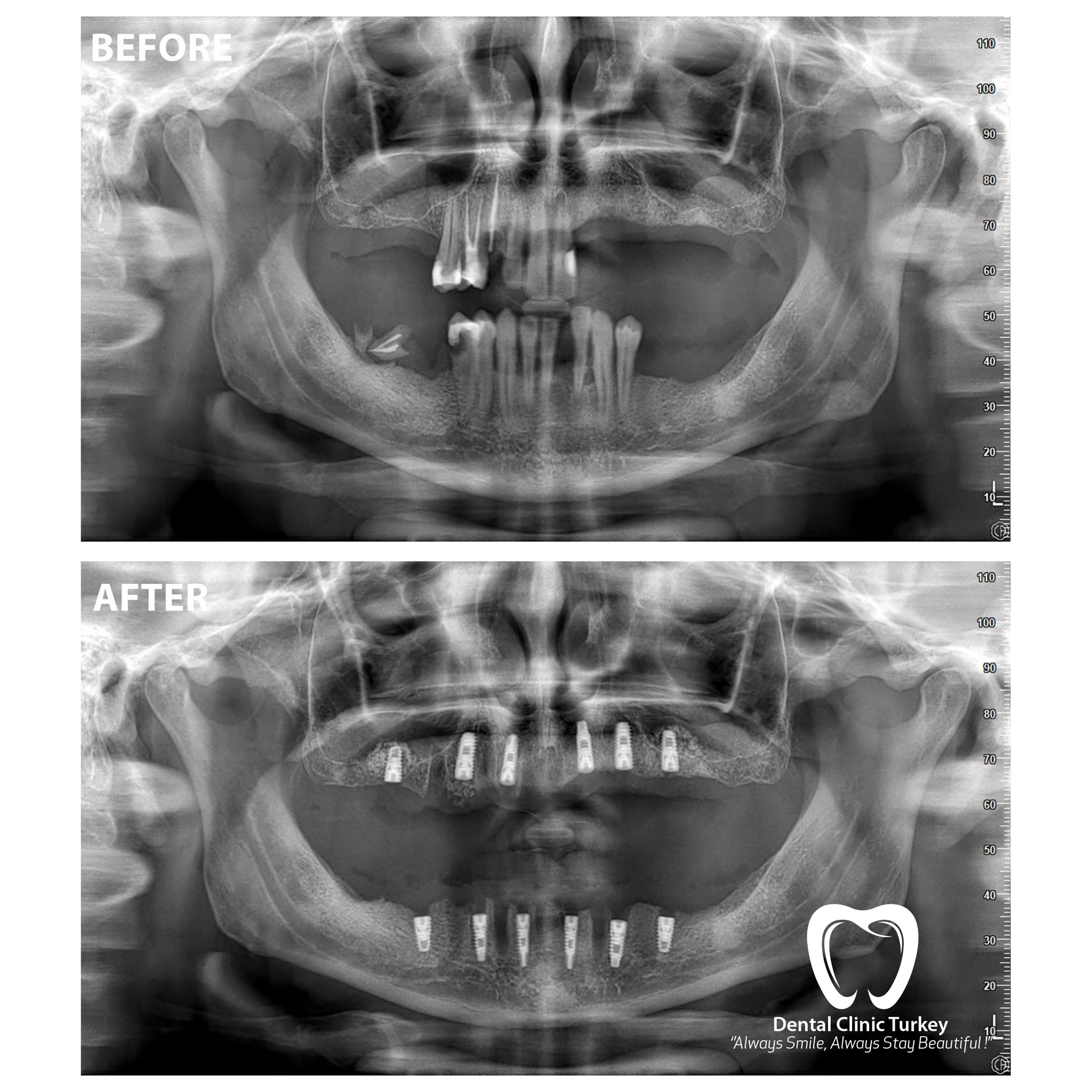 Turkey has emerged as a premier destination for dental tourism, offering world-class dental care at incredibly affordable prices. With its state-of-the-art dental facilities, skilled and experienced dentists, and a thriving medical tourism industry, Turkey has become a go-to choice for individuals seeking high-quality dental implant treatment.
Turkey has emerged as a premier destination for dental tourism, offering world-class dental care at incredibly affordable prices. With its state-of-the-art dental facilities, skilled and experienced dentists, and a thriving medical tourism industry, Turkey has become a go-to choice for individuals seeking high-quality dental implant treatment.
One of the primary reasons why dental implants in Turkey are so appealing is the significant cost savings. Compared to many Western countries, the cost of dental implants in Turkey can be up to 70% lower, making it a highly attractive option for those seeking to restore their smiles without breaking the bank. This cost-effectiveness is largely due to the lower overhead costs and the favorable exchange rate, allowing patients to access top-notch dental care at a fraction of the price they would pay elsewhere.
In addition to the financial benefits, Turkey’s dental clinics are equipped with the latest technology and employ highly skilled dentists who have undergone extensive training and are committed to providing exceptional patient care. Many of these dentists have international experience and are trained to the highest standards, ensuring that patients receive the same level of expertise and quality of treatment as they would in their home countries, if not better.
Advantages of dental implants
Dental implants offer a range of advantages over traditional tooth replacement options, such as dentures or bridges. One of the primary benefits of dental implants is their durability and longevity. Properly cared for, dental implants can last a lifetime, providing a permanent solution to missing teeth. This is in contrast to dentures or bridges, which may require replacement or adjustments over time.
Another key advantage of dental implants is their natural appearance and function. Dental implants are designed to mimic the look and feel of natural teeth, blending seamlessly with the surrounding teeth and gums. This can have a significant impact on a person’s confidence and self-esteem, as they no longer have to worry about the aesthetic or functional limitations of traditional tooth replacement options.
Dental implants also offer superior oral health benefits compared to other tooth replacement options. By replacing the root structure of the missing tooth, dental implants help to preserve the integrity of the jawbone, preventing the bone loss that can occur with missing teeth. This, in turn, helps to maintain the natural shape of the face and prevents the sunken or aged appearance that can result from significant bone loss.
Types of dental implants
There are several types of dental implants available, each with its own unique features and benefits. The most common types of dental implants include:
- Endosteal Implants: These are the most widely used type of dental implants and are surgically placed directly into the jawbone. Endosteal implants can be used to support single crowns, bridges, or even full dentures.
- Subperiosteal Implants: These implants are placed on top of the jawbone, beneath the gum tissue. Subperiosteal implants are typically used for patients with insufficient bone height or density, or for those who are unable to undergo a more invasive surgical procedure.
- Zygomatic Implants: These specialized implants are designed for patients with severe bone loss in the upper jaw. Zygomatic implants are anchored into the cheekbone (zygoma) rather than the jawbone, providing a stable foundation for dental restorations.
- Mini Dental Implants: Smaller in diameter than traditional implants, mini dental implants are an ideal solution for patients with limited bone volume or those who are not candidates for larger implants. These implants are often used to stabilize dentures or to replace single missing teeth.
The type of dental implant that is best suited for you will depend on your individual oral health, the number and location of missing teeth, and the overall condition of your jawbone. Your dentist in Turkey will thoroughly evaluate your needs and recommend the most appropriate implant solution to achieve the desired outcome.
The dental implant procedure
The dental implant procedure typically involves a multi-step process that can take several months to complete. The specific steps may vary depending on the type of implant and the individual patient’s needs, but the general process is as follows:
- Initial Consultation: During the initial consultation, your dentist in Turkey will thoroughly examine your mouth, take X-rays, and discuss your treatment options. This is an important step to ensure that you are a suitable candidate for dental implants and to develop a customized treatment plan.
- Tooth Extraction (if necessary): If you have a damaged or severely decayed tooth that needs to be removed, this will be done during the first step of the process.
- Implant Placement: Once the extraction site (if applicable) has healed, your dentist will surgically place the dental implant(s) into the jawbone. This is a precise and delicate procedure that requires the expertise of a skilled dental surgeon.
- Osseointegration: After the implant has been placed, a process called osseointegration begins. This is the period during which the implant fuses with the surrounding bone, creating a strong and stable foundation for the replacement tooth.
- Abutment Placement: Once the osseointegration process is complete, your dentist will attach an abutment to the implant. The abutment is the component that will support the final restoration, such as a crown, bridge, or denture.
- Restoration Placement: The final step is the placement of the restoration, which is the visible part of the dental implant that replaces the missing tooth or teeth. This may involve taking impressions, creating a custom restoration, and attaching it to the abutment.
Throughout the entire process, your dentist in Turkey will closely monitor your progress and provide you with detailed instructions on how to care for your dental implants during the healing and recovery period. With proper care and maintenance, your dental implants can last a lifetime, providing you with a beautiful and functional smile.
Preparing for dental implant surgery
Preparing for dental implant surgery is an important step in ensuring a successful outcome. Here are some key things you can do to get ready for your procedure:
- Comprehensive Dental Examination: Before your surgery, your dentist in Turkey will conduct a thorough examination of your mouth, including X-rays and potentially a CT scan. This will help them to assess the condition of your jawbone and determine the best course of action for your dental implant treatment.
- Quit Smoking: Smoking can significantly impact the success of dental implant surgery and the healing process. If you are a smoker, it is recommended that you quit at least two weeks before your procedure and refrain from smoking for at least two weeks after the surgery.
- Maintain Good Oral Hygiene: Proper oral hygiene is crucial before and after your dental implant surgery. Be sure to brush and floss your teeth regularly, and use any recommended mouthwashes or other products to keep your mouth clean and healthy.
- Discuss Medications: It’s important to inform your dentist about any medications you are currently taking, including over-the-counter supplements and herbal remedies. Some medications can affect the healing process or increase the risk of complications, so your dentist may need to adjust your treatment plan or provide specific instructions.
- Arrange for Assistance: Dental implant surgery typically requires some downtime for recovery. Make arrangements for someone to drive you home after the procedure and to assist you with any necessary tasks during the first few days of your recovery.
- Prepare for the Procedure: Your dentist in Turkey will provide you with detailed instructions on how to prepare for your surgery, including any dietary or hygiene requirements. Be sure to follow these instructions carefully to ensure a smooth and successful procedure.
By taking the time to properly prepare for your dental implant surgery, you can help to ensure a positive outcome and a smooth recovery process. Your dentist in Turkey will be there to guide you every step of the way and answer any questions or concerns you may have.
Aftercare and recovery
After your dental implant surgery, it’s important to follow your dentist’s instructions carefully to ensure a successful recovery. Here’s what you can expect during the aftercare and recovery process:
- Immediate Post-Surgery Care: Immediately after the surgery, your dentist will provide you with specific instructions on how to care for the surgical site. This may include applying ice packs, taking pain medication, and avoiding certain foods or activities.
- Healing and Osseointegration: The healing process after dental implant surgery can take several months, as the implant needs to fuse with the surrounding bone (osseointegration). During this time, it’s important to maintain good oral hygiene and avoid any activities that could disrupt the healing process.
- Temporary Restorations: In some cases, your dentist may provide you with a temporary restoration, such as a crown or denture, to use while the implant heals and the permanent restoration is being fabricated.
- Permanent Restoration Placement: Once the implant has fully integrated with the bone, your dentist will attach the permanent restoration, such as a crown, bridge, or denture, to the implant.
- Ongoing Maintenance: Proper oral hygiene and regular dental check-ups are essential for the long-term success of your dental implants. Your dentist in Turkey will provide you with specific instructions on how to care for your implants and any associated restorations.
Throughout the recovery process, it’s important to communicate openly with your dentist in Turkey. If you experience any pain, swelling, or other issues, be sure to let your dentist know right away so they can address the problem and ensure a successful outcome.
By following your dentist’s instructions and maintaining good oral hygiene, you can help to ensure that your dental implants provide you with a beautiful, functional, and long-lasting smile.
Cost of dental implants in Turkey
One of the primary reasons why dental implants in Turkey are so appealing is the significant cost savings compared to many other countries. The cost of dental implants in Turkey can be up to 70% lower than the cost in Western countries, making it a highly attractive option for those seeking high-quality dental care without breaking the bank.
The cost of dental implants in Turkey can vary depending on several factors, including:
- Type of Implant: The type of dental implant used can impact the overall cost. For example, standard endosteal implants may be less expensive than specialized implants like zygomatic or mini implants.
- Number of Implants: The cost per implant typically decreases as the number of implants increases, as the dental clinic can achieve economies of scale.
- Location and Reputation of the Clinic: Dental clinics in major cities or those with a high reputation may charge slightly more for their services, but the quality of care is often worth the additional cost.
- Additional Procedures: The cost of dental implants in Turkey may also include additional procedures, such as tooth extractions, bone grafting, or the fabrication of custom restorations.
On average, the cost of a single dental implant in Turkey, including the implant fixture, abutment, and crown, can range from €500 to €1500. This is significantly lower than the cost in many Western countries, where a single dental implant can cost upwards of €3,000 to €6,000 or more.
It’s important to note that the cost of dental implants in Turkey may also include the cost of travel and accommodation, as many patients choose to combine their dental treatment with a vacation. However, even with these additional expenses, the overall cost of dental implants in Turkey is still often significantly lower than the cost in the patient’s home country.
When comparing the cost of dental implants in Turkey to other countries, it’s essential to consider the quality of care, the expertise of the dentists, and the overall patient experience. Turkey’s dental clinics are known for their state-of-the-art facilities, cutting-edge technology, and highly skilled professionals, ensuring that patients receive the same level of care, if not better, than they would in their home countries.
Choosing a dental clinic in Turkey
When it comes to choosing a dental clinic in Turkey for your dental implant treatment, it’s essential to do your research and select a reputable provider that can deliver the highest quality of care. Here are some factors to consider when choosing a dental clinic in Turkey:
- Credentials and Qualifications: Look for a dental clinic that employs highly qualified and experienced dentists who are trained to the highest standards. Ensure that the dentists have the necessary certifications and specializations in dental implant surgery.
- Facilities and Technology: The dental clinic should have state-of-the-art facilities and use the latest technology in dental implant procedures, such as digital imaging, computer-guided surgery, and advanced materials.
- Patient Testimonials and Reviews: Check online reviews and patient testimonials to get a sense of the clinic’s reputation, the quality of care, and the overall patient experience.
- Communication and Language Support: Ensure that the dental clinic provides excellent communication and language support, as this can be crucial for international patients who may not be fluent in the local language.
- Aftercare and Follow-up: A reputable dental clinic should provide comprehensive aftercare and follow-up services to ensure the long-term success of your dental implant treatment.
- Accreditations and Certifications: Look for a dental clinic that is accredited by recognized international organizations, such as the Joint Commission International (JCI), as this can be an indicator of the clinic’s commitment to quality and safety.
- Transparency and Pricing: The dental clinic should be transparent about its pricing and provide clear information about the costs of the various procedures and services.
By taking the time to research and evaluate different dental clinics in Turkey, you can find a provider that offers the high-quality care, expertise, and personalized attention you deserve for your dental implant treatment. This will help ensure a successful outcome and a positive overall experience as you restore your smile with confidence.
Conclusion: Regain your smile with dental implants in Turkey
Dental implants in Turkey offer a compelling solution for individuals seeking to restore their smile and improve their overall oral health. With its world-class dental facilities, skilled dentists, and affordable prices, Turkey has emerged as a premier destination for dental tourism, attracting patients from around the world.
By choosing dental implants in Turkey, you can enjoy significant cost savings without compromising on the quality of care. The country’s dental clinics are equipped with the latest technology and employ highly qualified professionals who are committed to providing exceptional patient experiences.
Throughout the dental implant process, from the initial consultation to the final restoration placement, you can expect personalized attention and support from your dentist in Turkey. They will guide you through every step of the journey, ensuring that your treatment plan is tailored to your unique needs and that your recovery and aftercare are carefully managed.
Beyond the dental benefits, a trip to Turkey for dental implants can also be an opportunity to explore the country’s rich culture, stunning natural landscapes, and vibrant cities. From the historic grandeur of Antalya to the picturesque coastal towns, Turkey offers a wealth of experiences that can make your dental journey truly unforgettable.
Online Booking & Consultation for Dental Implants
If you’re tired of hiding your smile and are ready to regain your confidence, consider the many advantages of dental implants in Turkey. With its unbeatable combination of quality, affordability, and cultural richness, Turkey is the perfect destination to restore your smile and transform your life.
To get more detailed information about implant treatments and to make an online consultation appointment, call us today!


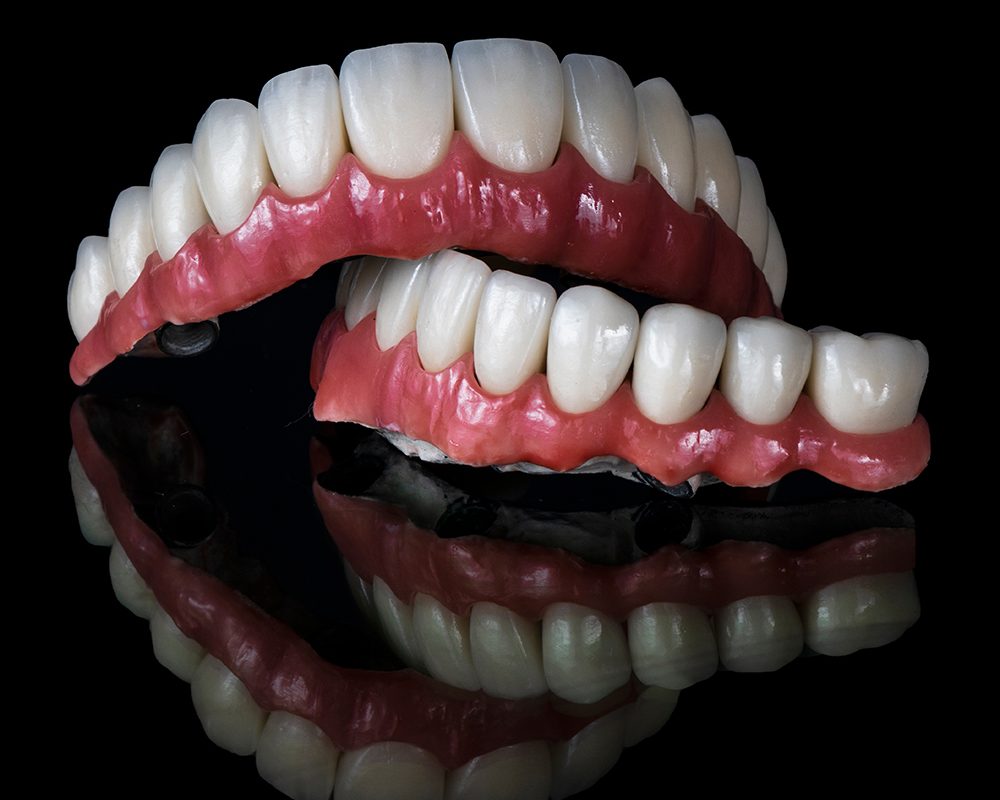

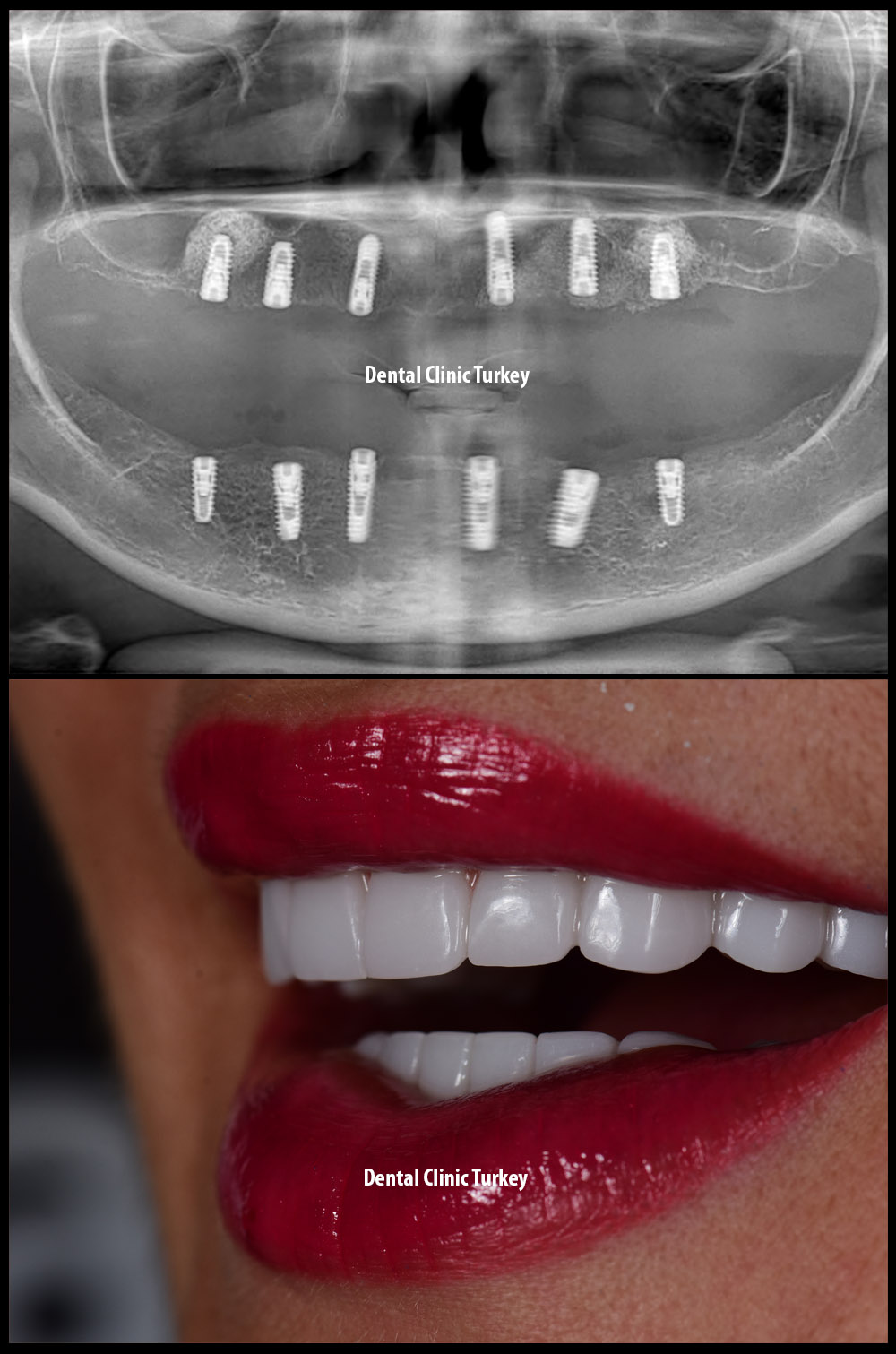
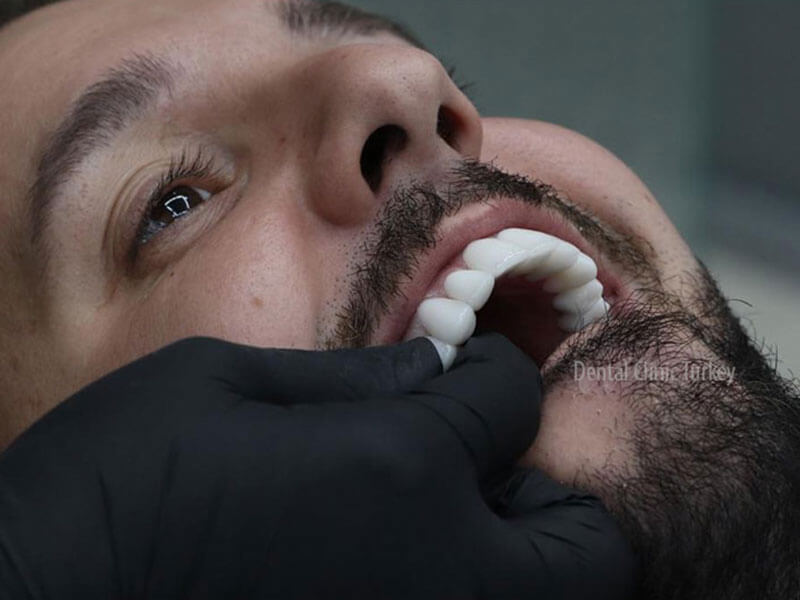

 A well-aligned, symmetrical smile is a hallmark of the perfect Hollywood smile. When your teeth are properly positioned, it not only enhances the aesthetic appeal of your smile but also contributes to the overall health and function of your mouth. Misaligned or crooked teeth can not only be visually unappealing but can also lead to a variety of dental problems, such as increased risk of tooth decay, gum disease, and even jaw pain.
A well-aligned, symmetrical smile is a hallmark of the perfect Hollywood smile. When your teeth are properly positioned, it not only enhances the aesthetic appeal of your smile but also contributes to the overall health and function of your mouth. Misaligned or crooked teeth can not only be visually unappealing but can also lead to a variety of dental problems, such as increased risk of tooth decay, gum disease, and even jaw pain.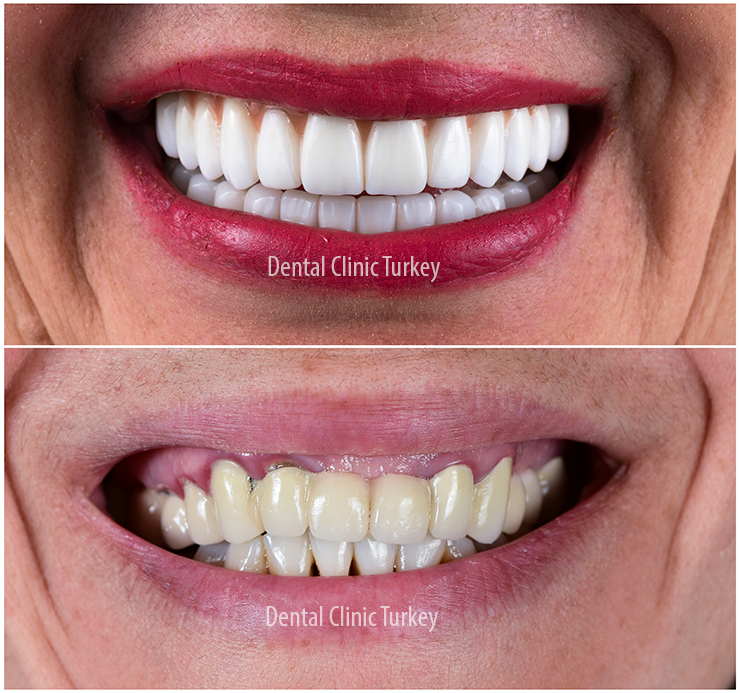





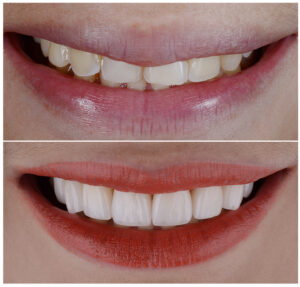 Turkey has emerged as a leading destination for dental tourism, attracting patients from around the world seeking high-quality dental treatments at affordable prices. When it comes to dental crowns, Turkey offers state-of-the-art clinics equipped with the latest technology and staffed by experienced and skilled dentists who specialize in cosmetic and restorative dentistry. The combination of advanced facilities and expert professionals ensures that patients receive top-notch care and exceptional results.
Turkey has emerged as a leading destination for dental tourism, attracting patients from around the world seeking high-quality dental treatments at affordable prices. When it comes to dental crowns, Turkey offers state-of-the-art clinics equipped with the latest technology and staffed by experienced and skilled dentists who specialize in cosmetic and restorative dentistry. The combination of advanced facilities and expert professionals ensures that patients receive top-notch care and exceptional results.
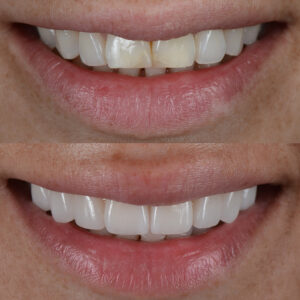 Turkey has emerged as a leading destination for dental tourism due to its combination of high-quality dental care, affordable prices, and beautiful attractions. Many visitors are drawn to Turkey not only for its renowned hospitality but also for the opportunity to receive expert dental treatments in a modern and welcoming environment. The country’s dental clinics are equipped with the latest technology and staffed by experienced professionals, ensuring that patients receive top-notch care for all their dental needs.
Turkey has emerged as a leading destination for dental tourism due to its combination of high-quality dental care, affordable prices, and beautiful attractions. Many visitors are drawn to Turkey not only for its renowned hospitality but also for the opportunity to receive expert dental treatments in a modern and welcoming environment. The country’s dental clinics are equipped with the latest technology and staffed by experienced professionals, ensuring that patients receive top-notch care for all their dental needs.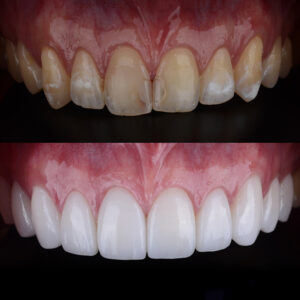
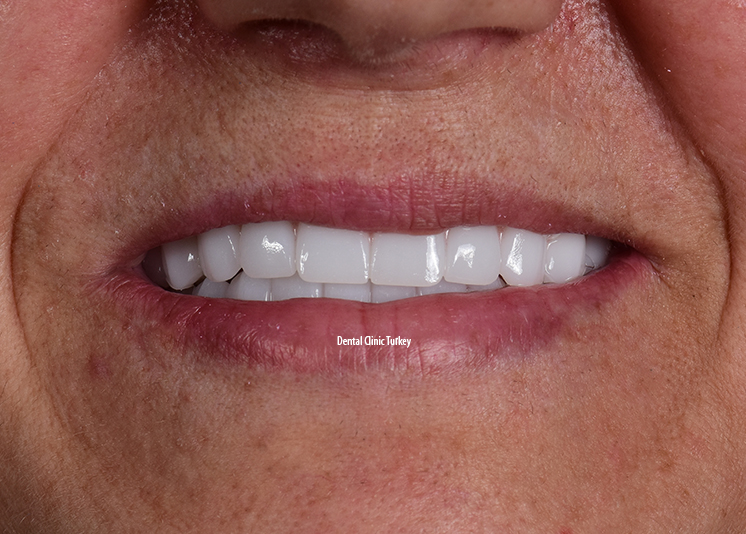
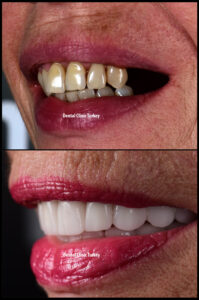 Turkey has emerged as a leading destination for dental implant treatments, attracting patients from around the world seeking high-quality care at affordable prices. The country’s advanced healthcare infrastructure, skilled dental professionals, and competitive pricing have contributed to its growing popularity as a dental tourism hub. According to recent statistics, Turkey performs thousands of dental implant procedures annually, with a high success rate and satisfied patients.
Turkey has emerged as a leading destination for dental implant treatments, attracting patients from around the world seeking high-quality care at affordable prices. The country’s advanced healthcare infrastructure, skilled dental professionals, and competitive pricing have contributed to its growing popularity as a dental tourism hub. According to recent statistics, Turkey performs thousands of dental implant procedures annually, with a high success rate and satisfied patients.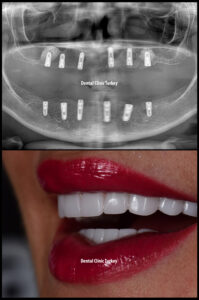 Choosing the right dental implant clinic in Turkey is crucial to ensuring a successful and satisfying treatment experience. With numerous options available, it’s essential to research and evaluate clinics based on their reputation, expertise, facilities, and patient reviews. Look for clinics that specialize in dental implant procedures, have experienced implantologists and oral surgeons, and offer comprehensive services from consultation to aftercare.
Choosing the right dental implant clinic in Turkey is crucial to ensuring a successful and satisfying treatment experience. With numerous options available, it’s essential to research and evaluate clinics based on their reputation, expertise, facilities, and patient reviews. Look for clinics that specialize in dental implant procedures, have experienced implantologists and oral surgeons, and offer comprehensive services from consultation to aftercare.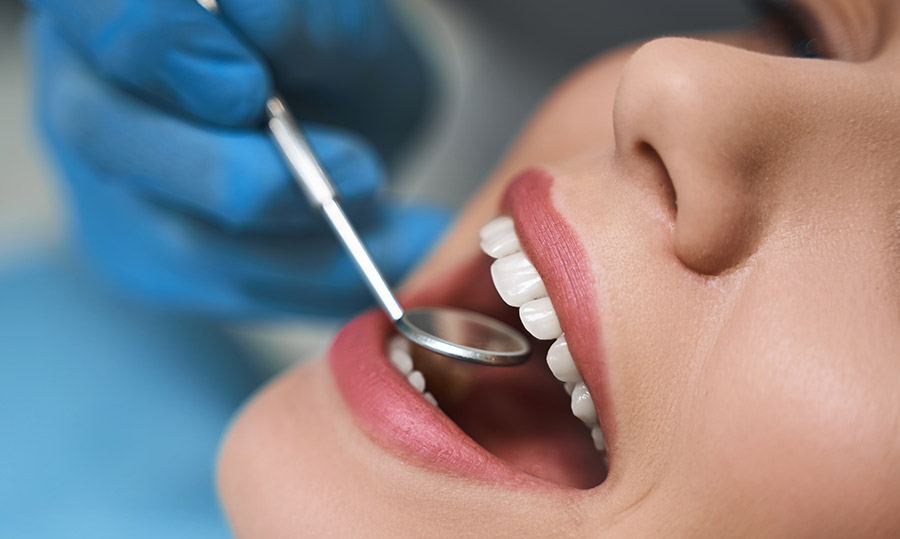

 Turkey has earned a reputation as a leading destination for medical tourism, attracting patients from around the world seeking high-quality and affordable healthcare services. The country boasts a thriving healthcare industry with modern facilities, skilled professionals, and a strong emphasis on patient satisfaction. When it comes to dental care, Turkey is known for its expertise in cosmetic dentistry, making it an ideal choice for Veneers treatments.
Turkey has earned a reputation as a leading destination for medical tourism, attracting patients from around the world seeking high-quality and affordable healthcare services. The country boasts a thriving healthcare industry with modern facilities, skilled professionals, and a strong emphasis on patient satisfaction. When it comes to dental care, Turkey is known for its expertise in cosmetic dentistry, making it an ideal choice for Veneers treatments.